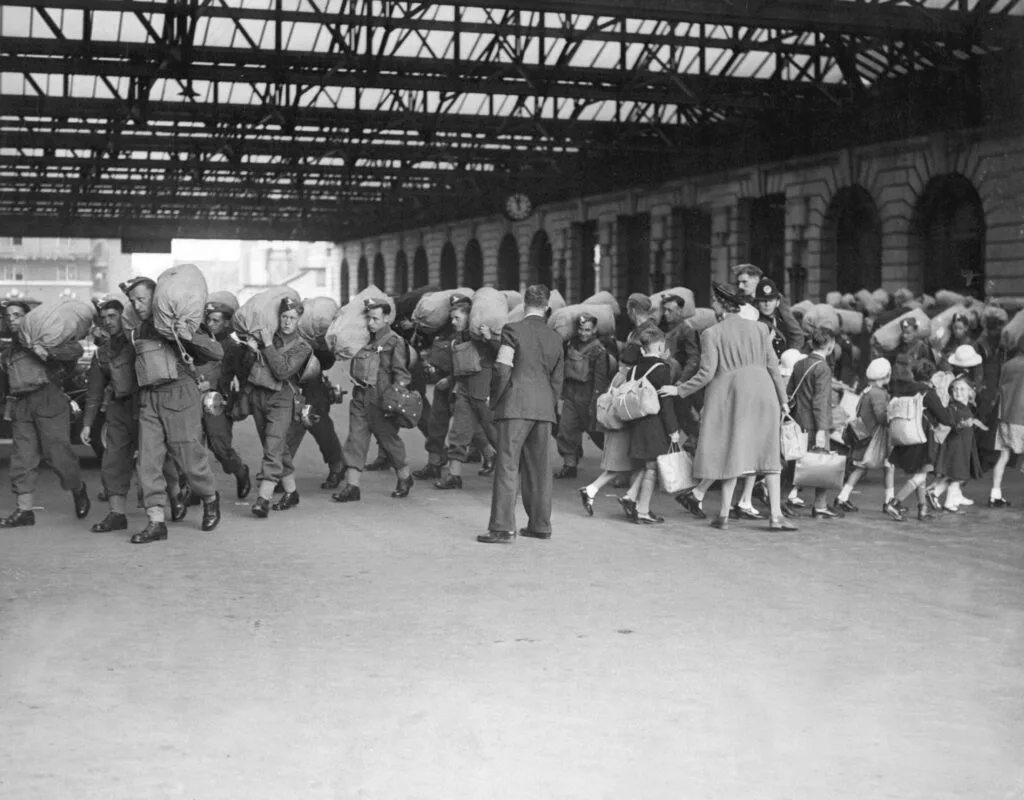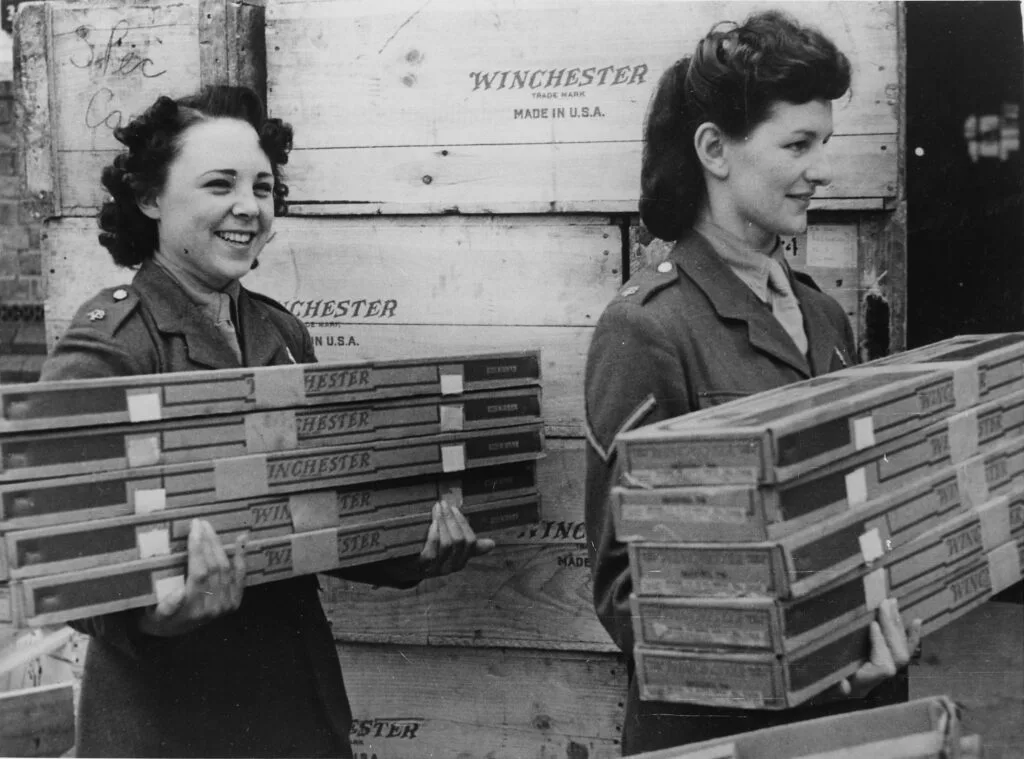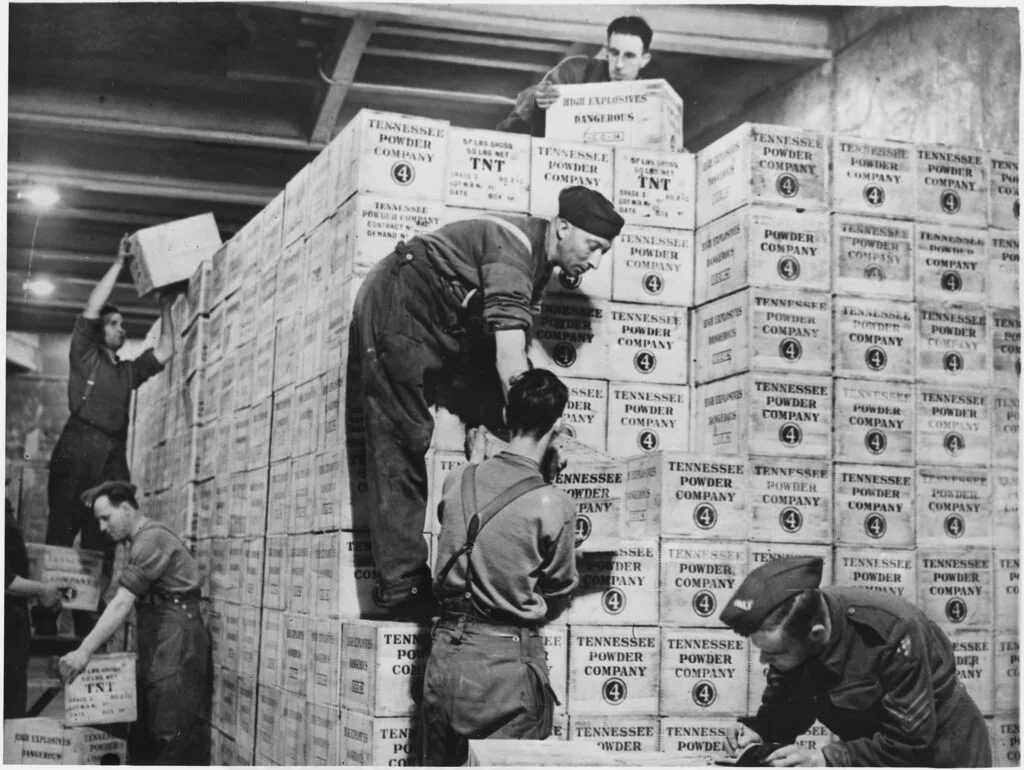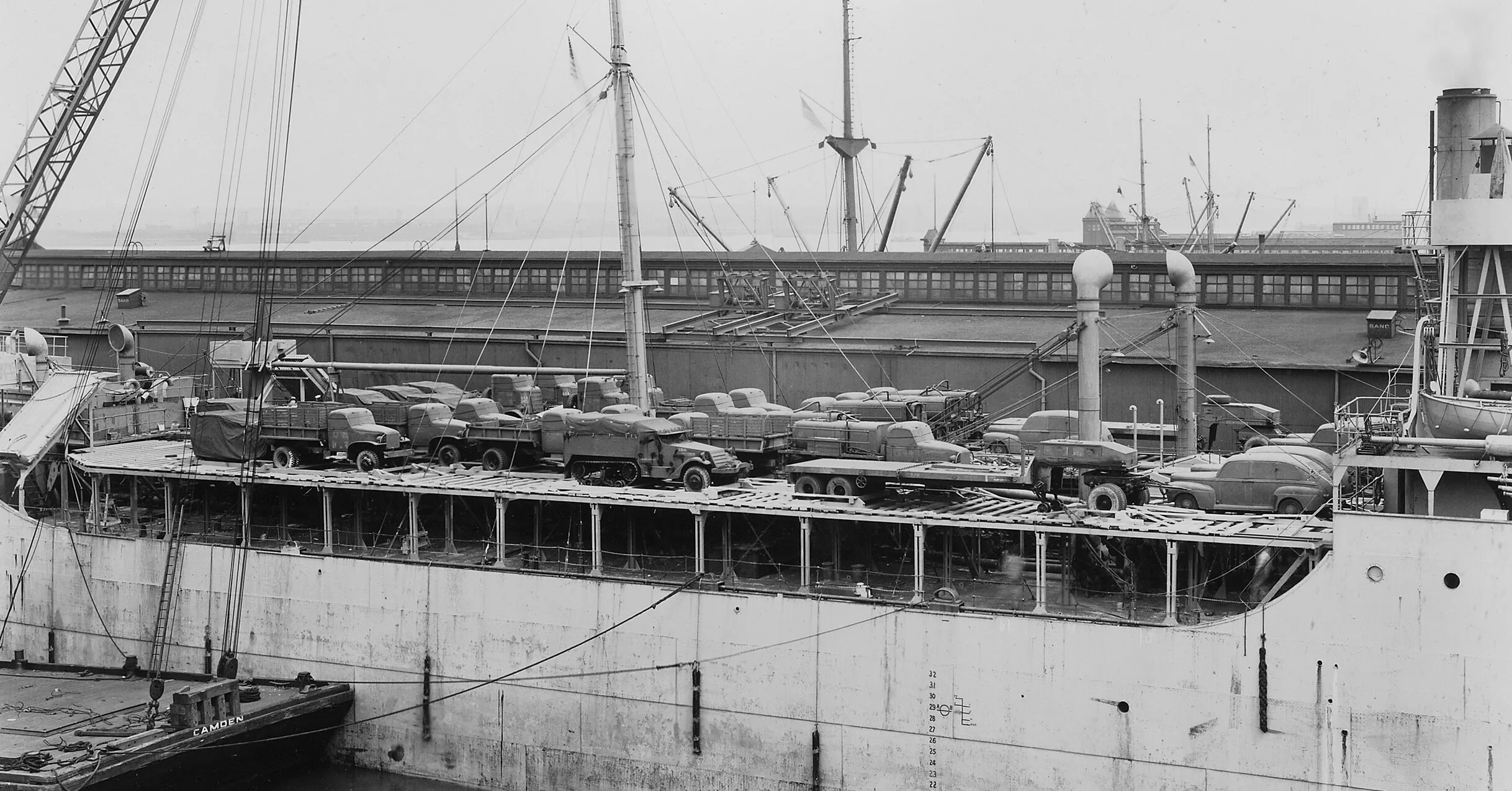In February 2025, speaking about the fact that Ukraine should conclude an agreement on mineral resources with the United States, Boris Johnson drew a parallel with the experience of Great Britain: Lend-Lease was a robbery, but it helped win the Second World War. We checked the politician’s words that his country had been paying for allied assistance for more than 60 years.
In an interview with Dmitry Gordon published on February 26, former British Prime Minister Boris Johnson commented, among other things, on the possible signing of an agreement between the United States and Ukraine on the joint development of Ukrainian mineral resources. The politician suggested that the agreement is beneficial to both Washington (it will prove to critics that the support already provided to Ukraine was not in vain) and Kyiv (it will make the US interest in providing support tangible), so the deal, no matter how difficult it may be, is worth going through. Johnson brought historical example: “In 1941, Franklin Roosevelt received huge sums of money from the British, many military bases in the Caribbean, Newfoundland, etc. in exchange for support under the Lend-Lease program. By the way, the UK continued to pay [debts] under Lend-Lease until 2006.” At the time of writing this analysis, the video has received 538,000 views.
Similar statements Johnson did and two days earlier at the Yalta European Strategy forum in Kyiv. Quotes from his speech were published Russian, Ukrainian And world Media. At the forum, the former British prime minister called the terms of Lend-Lease extortionate and complained that under them the Royal Navy received “old rusty vessels” instead of normal ships.
In the early weeks of World War II, which began in September 1939, the United States sought maintain neutrality in relation to events taking place in Europe. Although the administration of President Franklin Delano Roosevelt was sympathetic to the democratic regimes of Great Britain and France and had a negative attitude towards Nazi Germany and its allies, many other politicians and most citizens were against intervention in the war, including the supply of weapons to any of the parties. This was partly due to the negative experience of the First World War, when the United States generously issued loans to the allies, but as a result, Great Britain and some other countries during the Great Depression defaulted for these debts. Neither businessmen nor ordinary Americans wanted a repetition of such an unpleasant experience. Since 1935 in the USA acted a neutrality law that explicitly prohibited the export of weapons to any warring countries.
Gradually, this law was revised in accordance with unfolding events in Europe. So, in 1937, a clause was added to it that warring countries could purchase any goods from the United States, except weapons, subject to the approval of the president, prepayment and independent export of goods without the participation of American ships. In November 1939, under pressure from Roosevelt was accepted an updated neutrality law that allowed states that are at war to also purchase weapons from the United States.
As the position of Great Britain, which in the summer of 1940 almost single-handedly resisted the Third Reich, worsened, the US President lobbied new agreement: 50 destroyers were transferred to the British, and in exchange the Americans received a 99-year lease of territories on the island of Newfoundland, the Antilles and Bermuda to create military bases there.

Johnson is right that the British Navy criticized The destroyers received from the USA were largely outdated and heavily depreciated. However, most of them took part in hostilities, and nine ships in 1944 handed over USSR. For the United States, land leased also turned out to be not so necessary: most of the bases created there were closed already in 1949, the last ones in the mid-1990s.
The victory in the 1940 presidential election strengthened Roosevelt's position. He was able to overcome isolationist resistance in Congress to provide aid to Great Britain, whose financial and industrial resources were stretched to the limit. December 29, 1940 Roosevelt radio speech declared that the United States should become the arsenal of democracy in confronting Hitler. By opinion pollsBy the following month, 68% of Americans were willing to support British aid in the form of borrowing or renting property.
March 11, 1941 came into force Lend-Lease law, which authorized the sale, loan, exchange, lease, loan, or other transfer of any defense equipment to any government in cases deemed important to national security by the President of the United States. The possibility of exchange, rental or gratuitous support was important given the financial problems of the UK. In one of his speeches, Roosevelt figuratively described this measure: When your neighbor's house is on fire, you won't sell him a fire hose for $15, you'll lend him the hose so that he can return it when the fire is put out.
However, in practice, as was clear from the very beginning, there could be no talk of returning military equipment to the United States after the war, not to mention ammunition or food. The authorities understood that assistance must be provided virtually free of charge. “We buy, not give for nothing,” stated at a debate in the Senate, then US Secretary of Defense Henry Stimson. “We are buying our security for the time being while we prepare [to repel Hitler].”
Initially, under Lend-Lease, supplies went to Great Britain, its dominions and colonies. In April 1941, the law was distributed against Kuomintang China, which fought against Japan, and in October against the Soviet Union (in June the USSR was attacked by Germany, and in September he joined to the Atlantic Charter, a military alliance between the United States and Great Britain, concluded in August).
The total amount of American aid under the Lend-Lease program for all allies made up, according to some estimates, almost $50 billion (about $900 billion in recalculation with modern money). Primarily supplied military equipment, including tanks, aircraft, artillery and ships. However, non-military goods were no less, and in some areas even more important: vehicles (trucks and passenger cars, jeeps, railway locomotives and wagons), industrial equipment and raw materials (for example, steel), medicines and medical supplies, clothing and, of course, food. Great Britain and the rest of the British Empire received almost two-thirds of all American support, the USSR - more than 20%.
There was also the practice of the so-called reverse Lend-Lease - supplies from the allies to the United States. For example, Australia and New Zealand supplied American troops in the Pacific with food and fuel from the USSR supplied chrome and manganese ore, platinum and other metals.

Already in April 1945, the US Congress made a decision end the Lend-Lease program simultaneously with the end of the war. President Truman's decision to supply were stopped August 21, when Japan's surrender after the bombing of Hiroshima and Nagasaki became almost inevitable. Thus, Lend-Lease recipients were obliged to return or redeem all unspent property located in their territories as of September 2, 1945, when the Japanese surrender was signed and the war ended.
Although the US gave Britain a 90% discount, the British government was unable to pay even on such terms - after the war, the country's finances were in a deplorable state. Difficulties have begun negotiation with the American authorities, at which Britain was represented by the economist John Maynard Keynes. As a result, by December 1945 it was achieved American loan agreement UK at $3.75 billion (approx. $66 billion in modern money), and from these funds London undertook to pay debts on unused property under Lend-Lease, which were estimated at $650 million.
Loan terms were much softer than those accepted on the market at that time: 2% per annum, payments began in 1950, debt repayment period - 50 years. Great Britain also made a number of concessions - for example, it stopped artificially supporting the exchange rate of the pound sterling, which strengthened the status of the dollar as the main world currency. Later, the British authorities delayed payments several times due to unfavorable financial conditions and finally repaid the loan later than scheduled, December 29, 2006.
It is noteworthy that after the loan agreement, in 1948–1951, Great Britain became largest recipient of American aid under the so-called Marshall Plan, which was provided to Western European countries free of charge, in exchange for a military-political alliance with the United States.

After the war, the USSR returned part of the property received to the USA (mainly ships), but further negotiations were curtailed due to the outbreak of the Cold War. Only in October 1972, during the period of detente, the parties signed a document settling claims under Lend-Lease in the amount of $722 million (including interest), which the USSR undertook to pay by 2001, subject to the provision of most favored nation treatment in trade with the United States, as well as export credits and guarantees. By 1973, payments worth $48 million had been made, but then the process stopped due to cooling relations. In 1990 has been achieved an agreement to set the final date for repayment of Lend-Lease debt by 2030, but the process was interrupted by the collapse of the Soviet Union. In 1992, the Russian Federation became the successor to the financial obligations of the USSR, which fully paid off the Lend-Lease debt, like the UK, in 2006.
Thus, Johnson's statement is only partly true. Ultimately, Great Britain was forced to pay only a small part of the property received from the United States during the Second World War under the Lend-Lease program. However, the economic and social consequences of the war forced the British government to take out a loan from the United States, which, indeed, was finally repaid only in 2006.
Cover photo: US National Archives/Wikimedia Commons
Read on topic:
- M. Mikhailov. Saving Lend-Lease. Would the USSR have defeated without the help of its allies?
- Proshloe. Economy of World War II
- "Encyclopedia of the Holocaust". How did the United States government and Americans react to the Nazis?
- Is it true that Churchill deliberately allowed Coventry to be bombed in order to hide the decipherment of the German code by British intelligence?
- Did the White House press secretary say that the United States and Ukraine won World War II by fighting together against Hitler and Stalin?
If you find a spelling or grammatical error, please let us know by highlighting the error text and clicking Ctrl+Enter.






